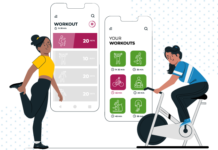Streamlining the hiring process can reduce the hiring cycle by 60% and improve quality.
Building a workforce requires more than job postings and interviews—it demands the expertise of a well-organized talent acquisition team.
A talent acquisition team drives an organization’s quest for the best-suited individuals. It is essential to understand what a talent acquisition team entails, its responsibilities, the crucial need for a well-designed structure, and practical steps on how to create one.
In this blog, you will learn about the strategic steps to build an efficient talent acquisition team structure. It will include understanding company needs and setting clear goals while leveraging technology tools and promoting ongoing training.
What is a Talent Acquisition Team?
Before diving into the intricacies of the talent acquisition system, let’s know a bit about a recruiting team.
Simply put, it’s a dedicated HR group within an organization responsible for attracting, identifying, and acquiring the right talent. This team hires new talent and focuses on long-term strategies to ensure the company thrives with the best-suited individuals.
Why Do You Need a Talent Acquisition Team?
Imagine this scenario: you hire an averagely qualified employee. They cannot provide the same productivity and results as a highly qualified employee.
But these top-tier talents are not easy to come by! They often have to be head-hunted and pursued aggressively. This is where a talent acquisition team comes in to assist organizations.
This specialized recruiting team helps with multiple responsibilities: their scope is vast, from crafting compelling employer brands to diving into the nitty-gritty of sourcing and screening candidates. Interviewing, selection, and ensuring a seamless onboarding experience fall under their purview, making them the architects of a company’s human capital.
An effective recruiting team structure ensures the team operates cohesively, minimizing bottlenecks and maximizing efficiency. It provides clarity on roles, streamlines communication, and aligns the team’s efforts with the overarching goals of the organization. It’s the compass guiding the ship through the vast sea of recruitment challenges.
Key Roles in Talent Acquisition Team Structure
Talent acquisition teams play a great role in making the process fast and efficient. A good recruitment team ensures that every hiring process step is carried out smoothly. Each role adds value to different steps of the process. The key roles within the talent acquisition team structure collectively contribute to a comprehensive hiring process. Their distinct responsibilities and coordination streamline recruitment, making it efficient and effective.
Here’s a list of roles to help you build an internal recruitment team structure that not only meets but exceeds your recruitment goals:
Recruiters
A recruiter coordinates the entire hiring process, conducts interviews, and manages tasks efficiently. They are the ones to start the recruitment process by writing job descriptions, and they coordinate interviews.
Head of Human Resources
The head of HR organizes applicant documents and keeps them in order, maintains the Applicant Tracking System, and manages salary and benefits, saving time and maintaining sanity in recruitment. HR leads save time by keeping all candidate reviews and forms current.
Resourcer
A resourcer finds talent for open positions. They ensure no applications are missed or lost in inboxes and provide a steady source of candidates that align with the company vision through effective communication.
Hiring Manager
A hiring manager directly hires in their respective department because they have detailed knowledge of department needs that ensure the best fit. They define the job requirements of the position to be filled and interview candidates.
Core Team Members
They are involved in the day-to-day work of the new hire. They make the new hire aware of the company’s goals and intentions, ensuring the candidate aligns well with the team and has the potential to be a top performer. Core team members also help in the onboarding and give reviews about the candidate to the hiring team.
Direct Supervisor
A Supervisor Informs the hiring team about specific department requirements, contributing to a more informed and successful recruitment process. They are a part of the interviewing team and conduct work trials.
Depending on your company size and requirements, you can have all these roles in your talent acquisition organizational structure, or you may pick a few key roles among these. You may also need some other positions that are useful to a particular hiring process.
How Do You Build an Effective Talent Acquisition Team Structure?
Crafting an effective internal recruitment team structure is both an art and a science. It involves strategic thinking, collaboration, and understanding the organization’s unique needs. To build an efficient talent acquisition team structure, you need to take a step-by-step approach.
Understand What Your Company Needs
Skills are like pieces of a puzzle that come together to build a picture. Once you collect the required skill set for your company, you can see the entire picture. Your first step is to figure out what pieces you’re missing. What skills, experiences, and talents are needed for different jobs in your company?
Set Clear Goals for Your Team
Define specific tasks and timelines for your hiring team. Set goals like how quickly they should hire, hiring diverse talents, and ensuring candidates have a great experience.
Create a clear plan detailing who does what. This helps everyone know their responsibilities and work together smoothly. This will also help you know what roles you require in the talent acquisition team structure.
Search for Talent
Once you know the roles you need in your talent acquisition team structure, you can focus on hiring the best team members whose talents align with your company’s needs. Try to build an inclusive and diverse team that can help you in various recruitment in the future.
Create a Smooth and Efficient Process
Develop a smooth, streamlined process that includes clear job descriptions and interview plans so everything runs seamlessly. Use high-tech tools to keep track of potential candidates as your company grows
Use Tech Tools and Data Wisely
Embrace tools like applicant tracking systems and AI-powered helpers. Analyze data to see what’s working and make your team even more powerful so that you can identify trends and make well-informed decisions.
Train Your Team for Ongoing Success
Invest in training, so your team stays ahead of the game. Teach them the latest tricks, like better sourcing and understanding diversity, and encourage them to share their knowledge for even more success.
You must analyze the trends and requirements of your company and build a talent acquisition team structure that aligns with company goals. The team must collaborate and make the recruitment process smooth and hassle-free.
Conclusion
A well-structured talent acquisition team is the backbone of successful recruitment. It ensures that organizations attract, identify, and acquire the right talent. From crafting compelling employer brands to executing seamless onboarding experiences, the team plays a pivotal role in shaping the company’s human capital.
Building an effective talent acquisition team structure involves understanding the company’s unique needs, setting clear goals, and creating a plan detailing each member’s responsibilities. A well-crafted Talent Acquisition Team structure is a strategic asset for any organization that wants to thrive through a dynamic and diverse workforce.








